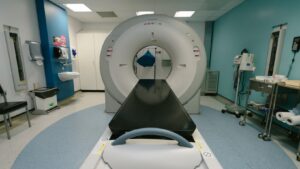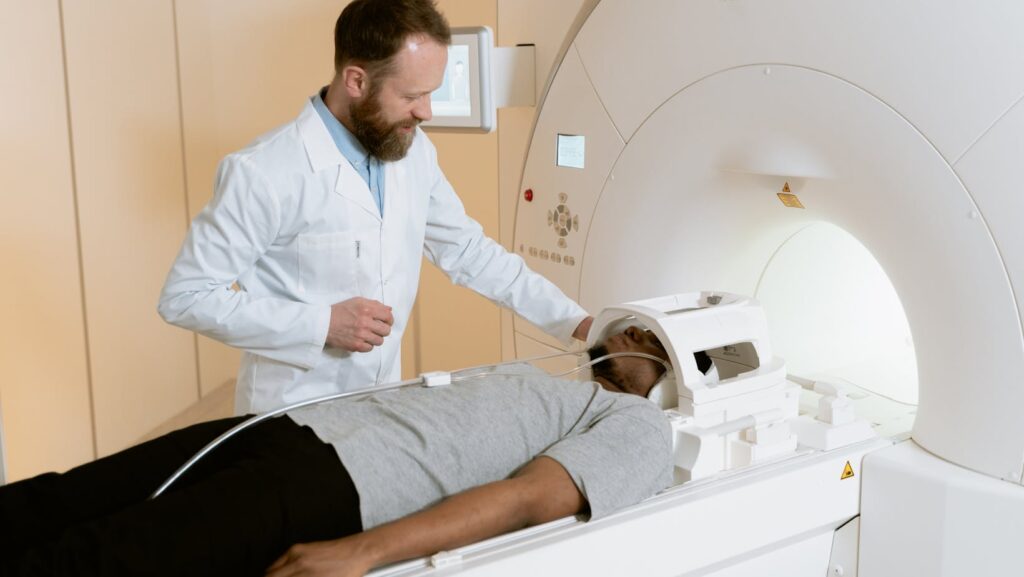In the ever-evolving field of healthcare, nuclear medicine technology stands out as a unique and rewarding career path. But what is nuclear medicine tech salary on the cutting edge of medical science? Let’s delve into the world of nuclear medicine tech salaries.
Nuclear Medicine Tech Salary
 Nuclear Medicine Technologists play a pivotal role in the medical system. Their work combines technical acumen with patient care, forming a bridge between advanced technology and human health.
Nuclear Medicine Technologists play a pivotal role in the medical system. Their work combines technical acumen with patient care, forming a bridge between advanced technology and human health.
A Nuclear Medicine Technologist’s job is multifaceted, involving technical, communication and patient-care tasks. They prepare and administer radiopharmaceuticals, substances that emit radiation, for diagnostic purposes, for example, imaging and scanning. Furthermore, they perform patient imaging procedures using sophisticated radiation-detecting instrumentation. Their role requires them to explain test procedures to patients, ensuring their comfort and cooperation.
Deciphering the Nuclear Medicine Tech Salary
Factors Influencing the Salary
 A nuclear technology technician’s salary hinges primarily upon three key factors: education, experience, and geographic location. Firstly, the level of educational attainment plays a significant role in establishing the initial pay scale. The data suggests that a bachelor’s degree in nuclear medicine technology tends to draw a higher starting salary as compared to an associate’s degree in the same field.
A nuclear technology technician’s salary hinges primarily upon three key factors: education, experience, and geographic location. Firstly, the level of educational attainment plays a significant role in establishing the initial pay scale. The data suggests that a bachelor’s degree in nuclear medicine technology tends to draw a higher starting salary as compared to an associate’s degree in the same field.
The second factor is experience. Nuclear medicine technicians holding a wealth of experience in the field, often reflected in increased proficiency and expertise, typically command a higher salary.
Lastly, the salary also significantly varies based on geographical location, with technologists in metropolitan areas generally earning more due to higher living costs and enhanced job opportunities.
Career Progression and Salary Increment
Career progression in nuclear medicine technology usually comes with increased responsibilities and consequently leads to a rise in salary. Starting as a staff technologist, one can advance to a senior or lead technologist position, given their experience and performance. Further advancement can lead to administrative roles, such as department manager or director.
Moreover, continuous professional development through advanced certification in specialized areas like computed tomography (CT) or magnetic resonance imaging (MRI) can also lead to salary increases. The acquisition of these specialist skills equips nuclear medicine technologists with greater expertise and versatility, making them more valuable to employers and subsequently leading to higher remuneration.
Comparison with Other Medical Tech Salaries
A nuclear medicine tech salary form an intriguing study when compared to other medical technologists’ earnings. This detailed analysis investigates the salaries of diverse medical technology professionals and explains the reasons behind the distinct pay rates.
Various elements contribute to the salaries of medical technology professionals.
Data indicates that nuclear medicine technologists have one of the highest median salaries within these professions. These figures, however, are not universal and can vary based on factors such as education, experience level, and geographic location.
 Evolution in the medical technology industry brings forth pay anomalies among different medical professions. For instance, nuclear medicine technologists’ salaries stand out due to their specialized nature of work and level of patient interaction. Their jobs involve handling complex technologies and hazardous substances, not to mention they require comprehensive knowledge of anatomy, physics, and chemistry. Additionally, their broad range of responsibilities, from preparation and administration of radioactive drugs to scanning patients’ bodies and analyzing the images, mandates a high degree of expertise, ultimately commanding higher pay.
Evolution in the medical technology industry brings forth pay anomalies among different medical professions. For instance, nuclear medicine technologists’ salaries stand out due to their specialized nature of work and level of patient interaction. Their jobs involve handling complex technologies and hazardous substances, not to mention they require comprehensive knowledge of anatomy, physics, and chemistry. Additionally, their broad range of responsibilities, from preparation and administration of radioactive drugs to scanning patients’ bodies and analyzing the images, mandates a high degree of expertise, ultimately commanding higher pay.
Contrarily, other professions like Medical and Clinical Laboratory Technologists, though they play an integral role in healthcare, they don’t engage in much direct patient interaction, nor do they require handling of hazardous materials. These and other similar operational differences account for the diverse salary structures in the medical technology field.
Rewarding Career Path
Nuclear medicine tech salary indeed is promising. They’re rewarded for their unique role in patient care and the specialized knowledge they bring to the table. When compared with other medical technologists, they tend to earn a higher median salary, a testament to the value of their expertise. It’s clear that choosing a career in nuclear medicine technology not only offers a competitive pay scale but also provides significant career growth opportunities.

